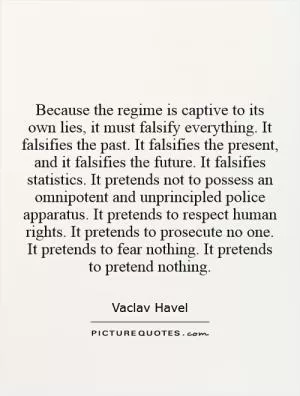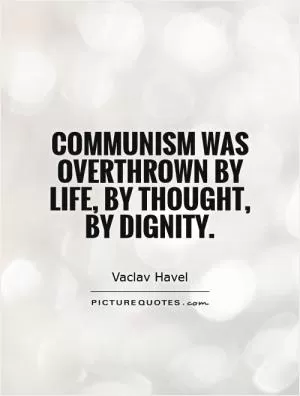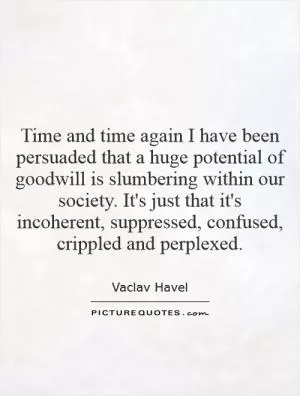There's always something suspicious about an intellectual on the winning side

There's always something suspicious about an intellectual on the winning side
Vaclav Havel, the renowned Czech playwright, dissident, and politician, is a prime example of an intellectual who found himself on the winning side of history. Havel played a crucial role in the Velvet Revolution of 1989, which peacefully overthrew the communist regime in Czechoslovakia and paved the way for the country's transition to democracy. However, despite his significant contributions to the downfall of communism and his subsequent election as the first president of the newly formed Czech Republic, there were always those who viewed him with suspicion.The quote "There's always something suspicious about an intellectual on the winning side" can be applied to Havel in a number of ways. Firstly, Havel's background as a playwright and intellectual made him an unconventional leader in the eyes of many. His ideas and beliefs were often seen as radical and subversive by the communist regime, and even after the fall of communism, some viewed him as an outsider who did not belong in the world of politics. This sense of suspicion was heightened by Havel's close ties to the dissident movement and his vocal criticism of the government, which made him a target for surveillance and harassment.
Furthermore, Havel's success in leading the Velvet Revolution and his subsequent election as president raised questions about his true intentions and motivations. Some believed that he was using his intellectual prowess and charisma to manipulate the masses and further his own agenda. Others saw him as a puppet of the West, a figurehead who was being controlled by outside forces to serve their interests. In this sense, Havel's position on the winning side of history made him a target for conspiracy theories and accusations of betrayal.
Despite these suspicions, Havel's legacy as a champion of democracy and human rights remains untarnished. His commitment to truth, justice, and freedom inspired a generation of activists and intellectuals, both in Czechoslovakia and around the world. While there may always be something suspicious about an intellectual on the winning side, in the case of Vaclav Havel, his actions and beliefs speak for themselves, proving that sometimes the right side of history is also the side of truth and justice.












 Friendship Quotes
Friendship Quotes Love Quotes
Love Quotes Life Quotes
Life Quotes Funny Quotes
Funny Quotes Motivational Quotes
Motivational Quotes Inspirational Quotes
Inspirational Quotes